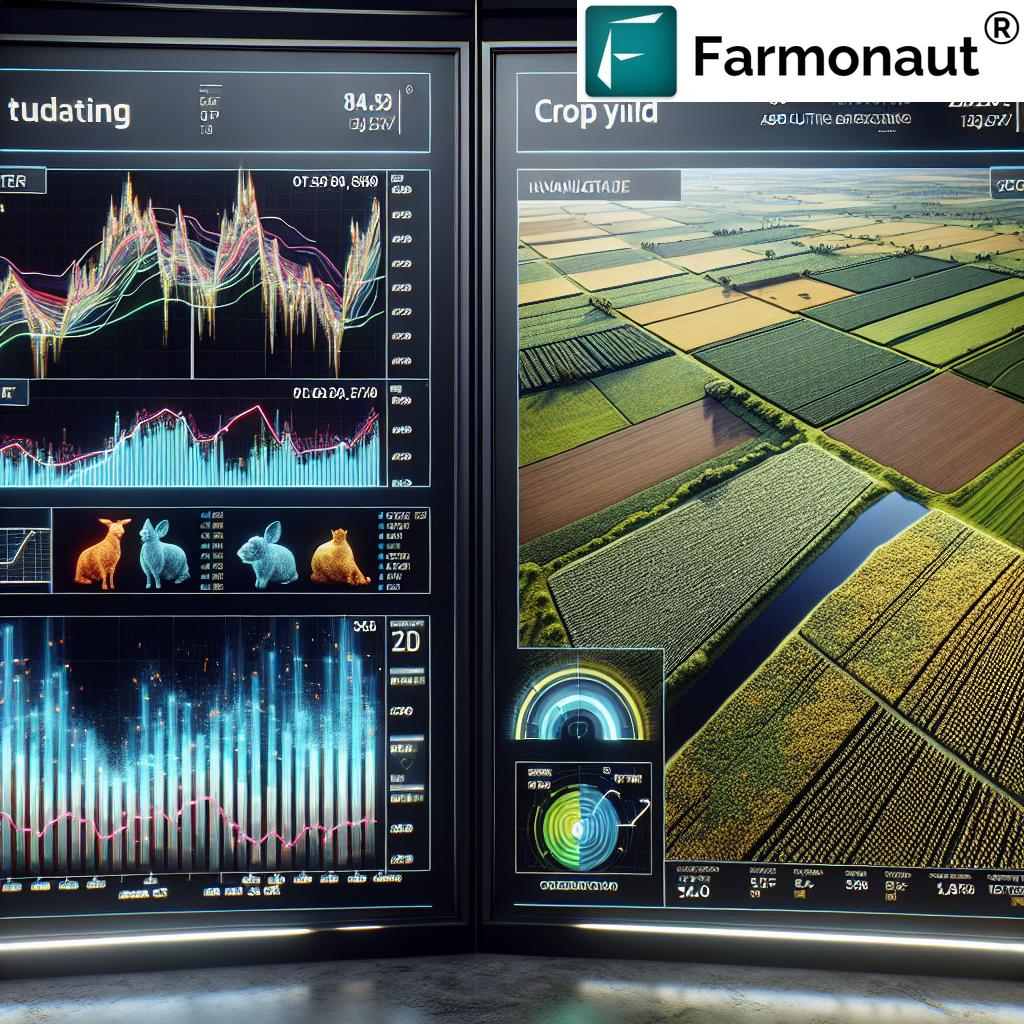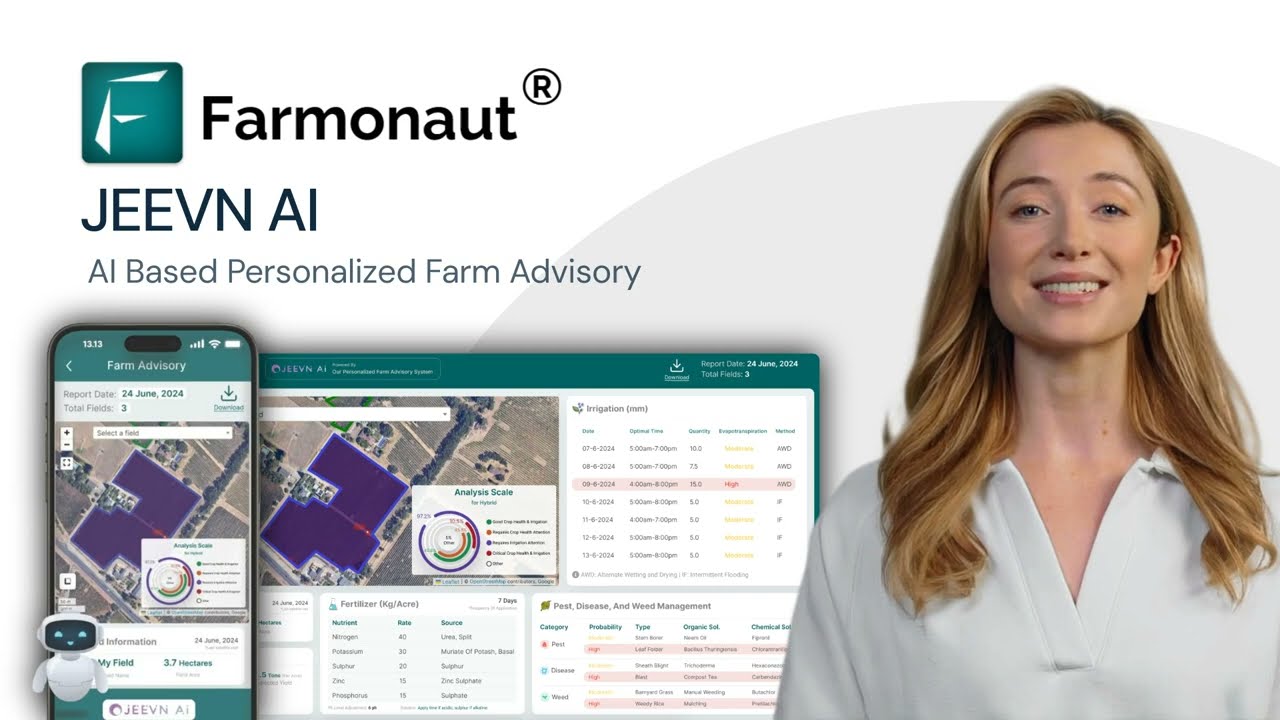
In the heart of Alabama’s agricultural landscape, where wheat fields stretch as far as the eye can see, a technological revolution is taking root. Farmonaut’s Satellite-AI Based Farm Intelligence, known as JEEVN AI, is transforming the way Alabama wheat farmers approach their craft. This innovative solution is designed to bring precision, efficiency, and data-driven decision-making to the forefront of agricultural practices in the Yellowhammer State.
🌾 The Alabama Wheat Farming Landscape
Alabama’s wheat industry, while not as prominent as cotton or soybeans, plays a crucial role in the state’s agricultural diversity. According to the USDA National Agricultural Statistics Service, Alabama farmers planted approximately 170,000 acres of wheat in 2022. The state’s unique climate and soil conditions present both opportunities and challenges for wheat growers.
Wheat farmers in Alabama face several challenges, including:
- Unpredictable weather patterns
- Soil nutrient management
- Pest and disease control
- Water management in drought-prone areas
- Yield optimization
JEEVN AI by Farmonaut Technologies addresses these challenges head-on, offering Alabama wheat farmers a powerful tool to enhance their operations and boost productivity.
🛰️ Harnessing Satellite Intelligence for Alabama Farms
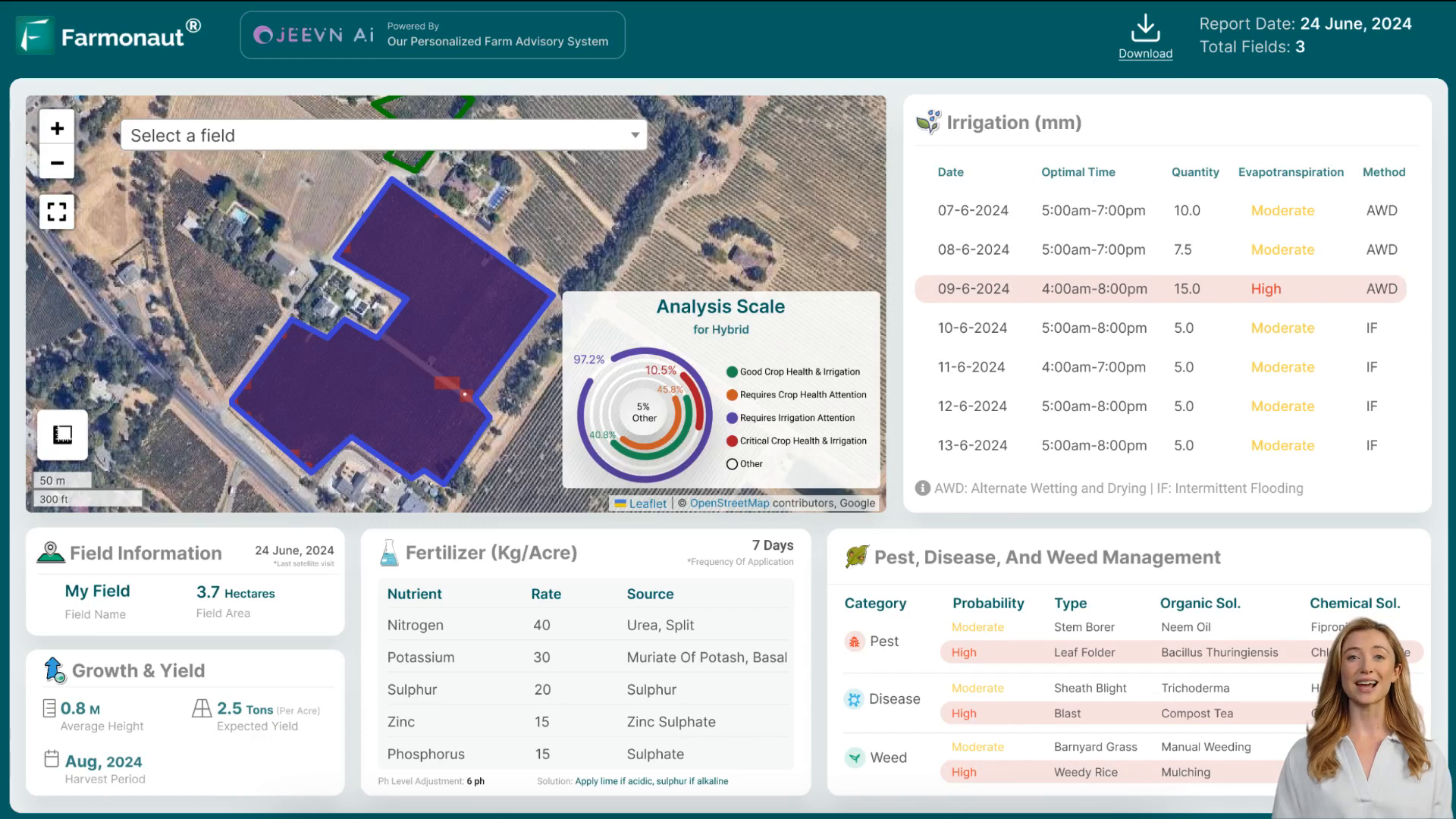
At the core of JEEVN AI’s capabilities is its integration of satellite intelligence with local farm data. This cutting-edge system combines satellite imagery, weather data, and farm-specific information to deliver precise, actionable insights tailored to each Alabama wheat farm’s unique needs.
For Alabama farmers, this means access to a wealth of information about their fields without the need for constant physical inspections. The system can detect variations in crop health, soil moisture, and potential issues across vast acreages, providing a bird’s-eye view of farm operations that was previously unattainable.
🧪 Soil Nutrient Analysis: Optimizing Alabama’s Wheat Fields
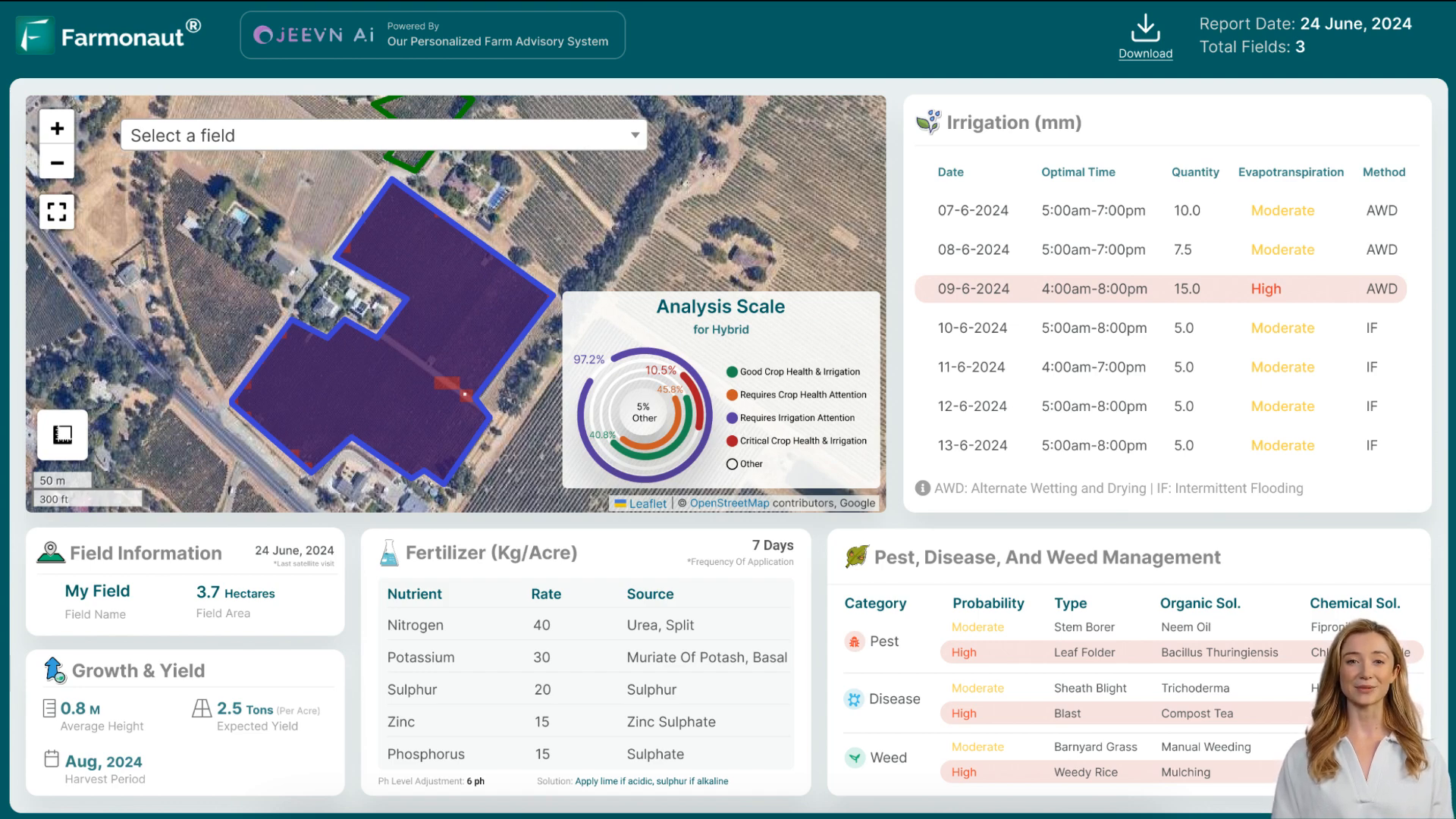
Alabama’s soils vary greatly across the state, from the rich Black Belt to the sandy Coastal Plain. JEEVN AI offers detailed insights into soil nutrient levels, analyzing concentrations of essential elements like nitrogen, phosphorus, potassium, zinc, and sulfur. This feature is particularly valuable for Alabama wheat farmers, as it helps them understand their soil’s specific needs and develop targeted fertilization strategies.
For instance, if JEEVN AI detects low nitrogen levels in a field in Lawrence County, known for its wheat production, it will recommend an appropriate amount of nitrogen fertilizer to apply. This precision ensures that crops receive the nutrients they need while preventing over-fertilization, which can be both costly and environmentally harmful.
📊 Maintaining Optimal Soil pH for Alabama Wheat
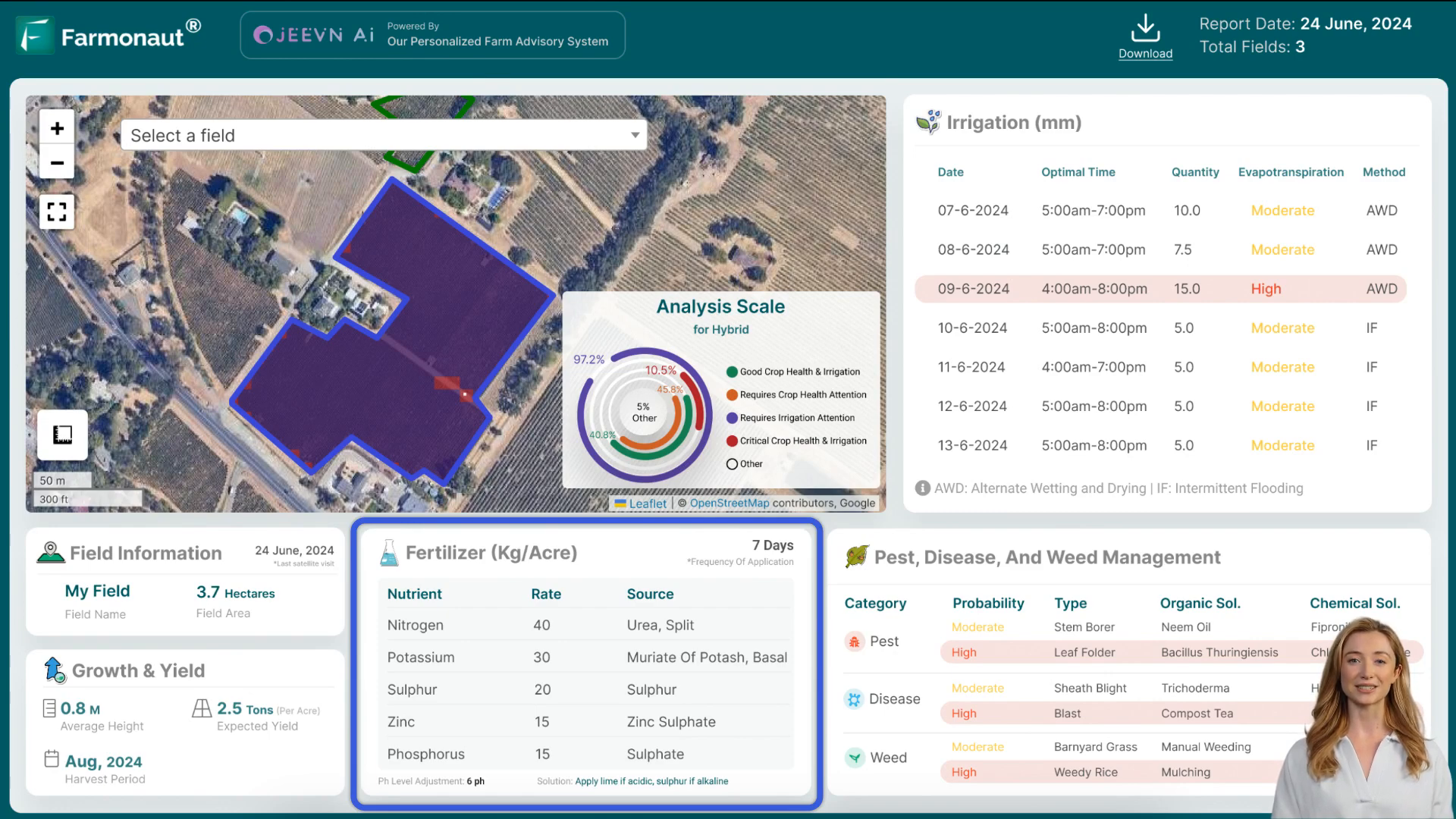
Soil pH is a critical factor in wheat production, affecting nutrient availability and overall plant health. Alabama’s soils tend to be naturally acidic, which can be challenging for wheat growth. JEEVN AI monitors soil pH levels across fields and offers corrective measures when needed.
For example, if the system detects that soil pH in a Madison County wheat field has dropped below the optimal range of 6.0 to 7.0, it might suggest a lime application to raise the pH. This proactive approach helps Alabama farmers maintain ideal growing conditions, leading to better crop performance and higher yields.
🐛 Early Pest and Disease Detection: Protecting Alabama’s Wheat
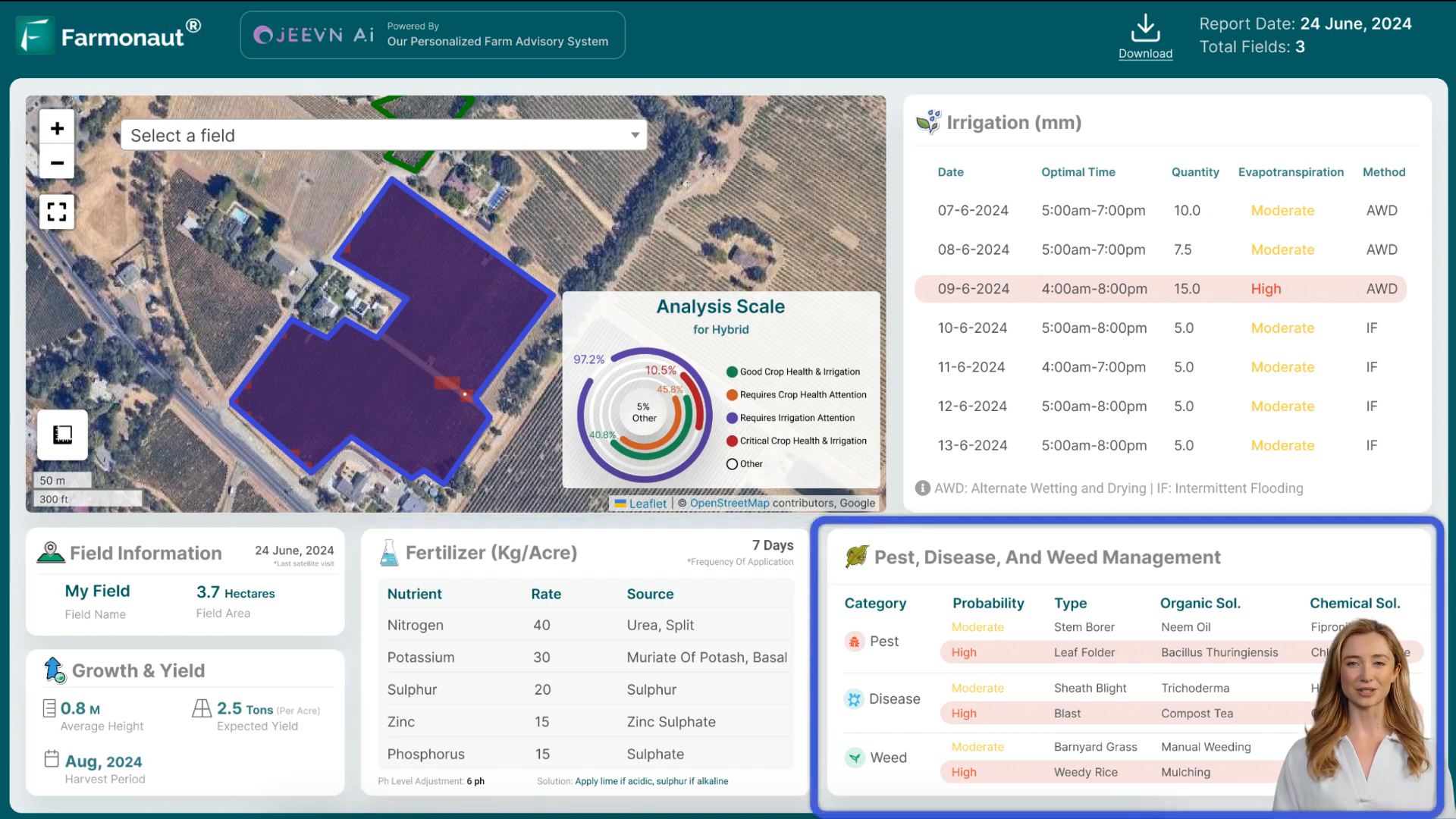
One of JEEVN AI’s most impressive features is its ability to identify potential pests and diseases affecting wheat crops. By analyzing satellite images, weather patterns, and local data, the system can predict pest outbreaks and suggest preventive measures. This is particularly valuable for Alabama wheat farmers who face threats from pests like Hessian fly and diseases such as stripe rust.
Early detection allows for targeted interventions, reducing the need for broad-spectrum pesticides. For instance, if conditions in Baldwin County are favorable for a stripe rust outbreak, JEEVN AI will alert farmers and provide preventive measures to protect their crops. This not only lowers costs but also promotes more environmentally friendly farming practices, aligning with Alabama’s commitment to sustainable agriculture.
💧 Efficient Water Management for Alabama’s Wheat Farms
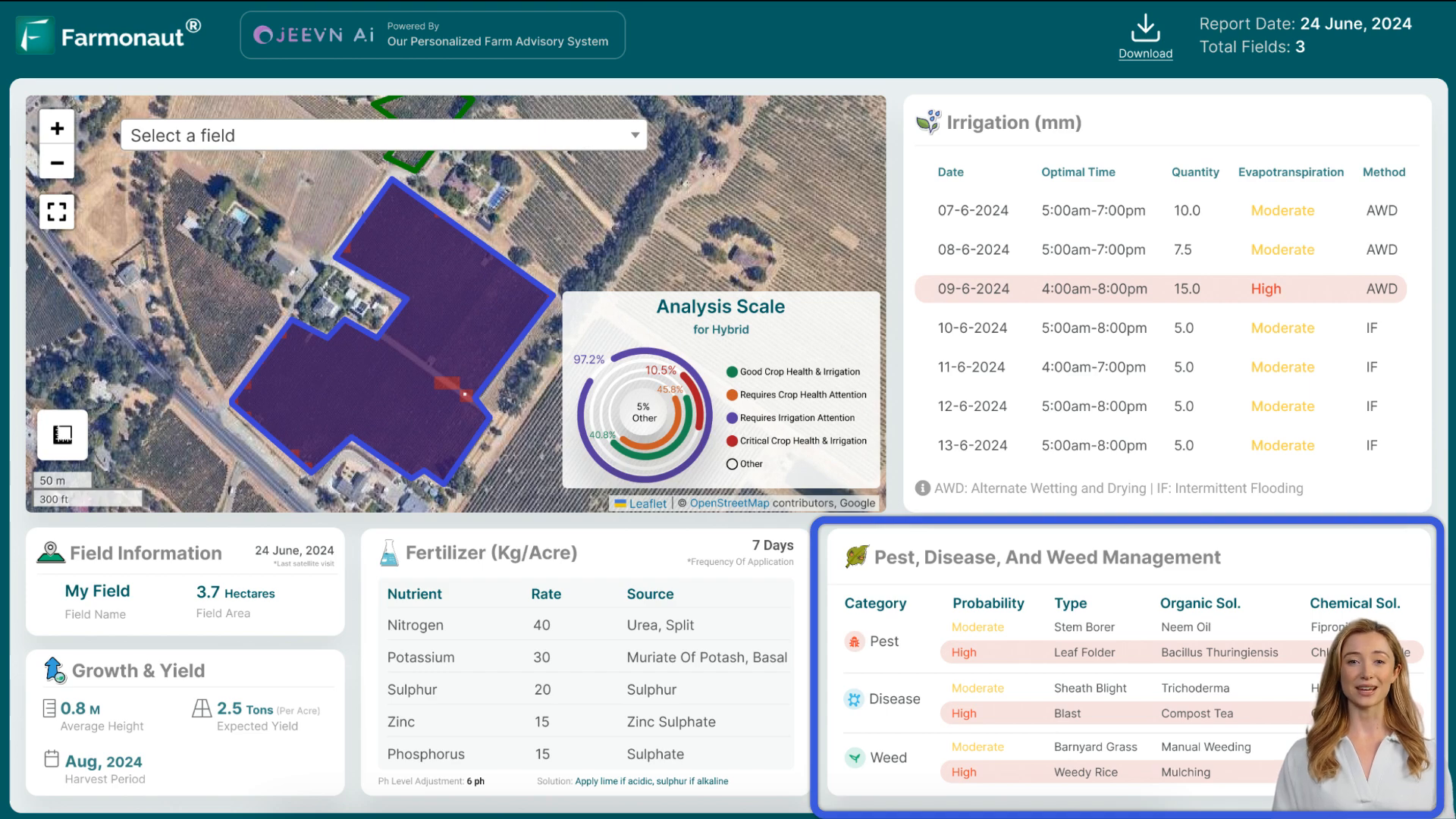
Water management is crucial for wheat production in Alabama, especially in areas prone to drought. JEEVN AI uses a combination of weather data, soil moisture levels, and crop requirements to determine optimal irrigation schedules. This feature is particularly beneficial for farmers in the Tennessee Valley region, where irrigation is often necessary for consistent wheat yields.
By providing precise recommendations on when and how much to water, JEEVN AI helps conserve water resources and prevent over or under-irrigation. This ensures that wheat crops receive the right amount of water at the right time, promoting healthy growth while adhering to Alabama’s water conservation efforts.
📈 Boosting Crop Growth and Yield in Alabama
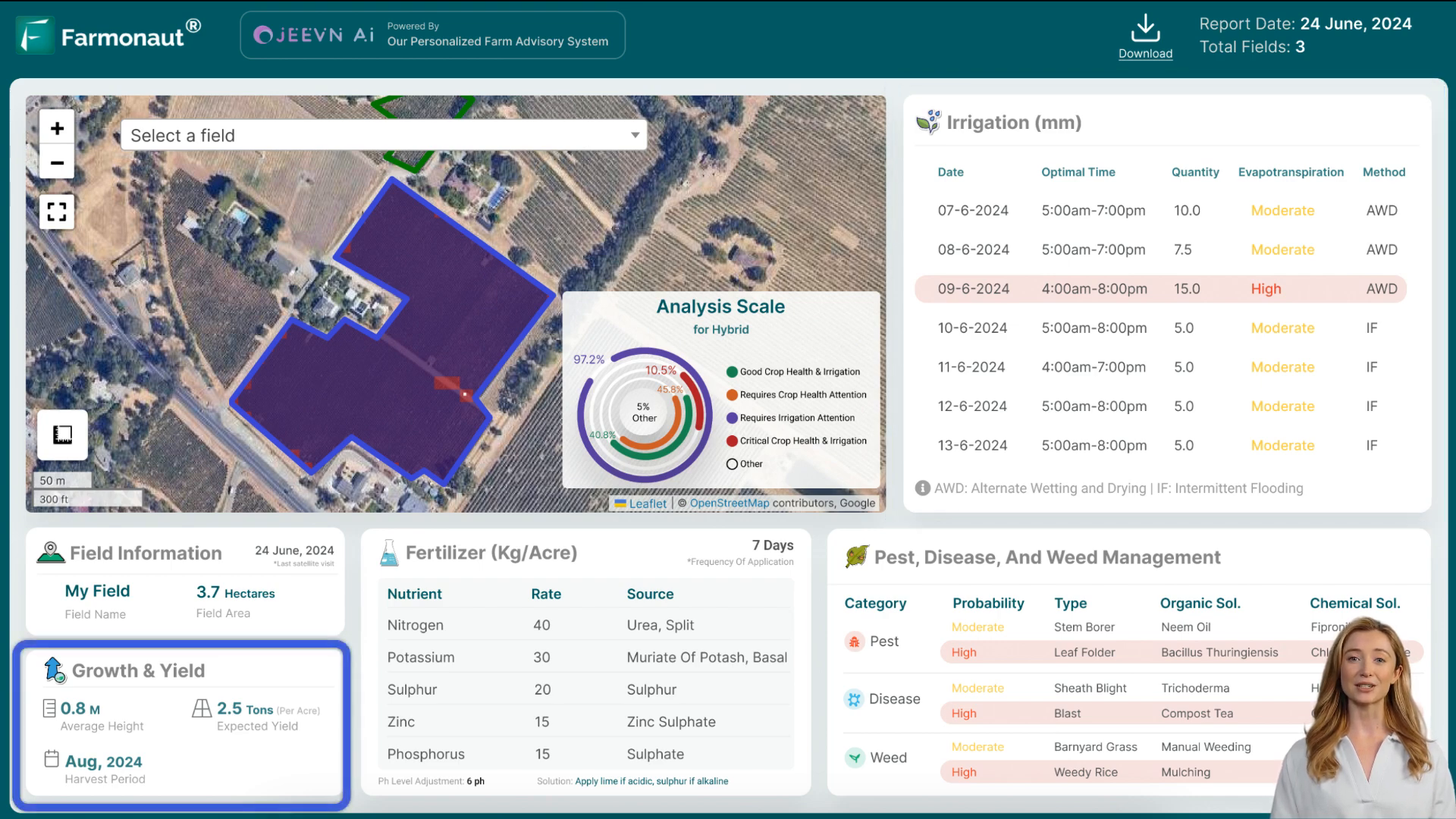
The impact of JEEVN AI on crop growth and yield is profound, offering Alabama wheat farmers a comprehensive tool for optimizing their harvests. The system not only ensures proper soil nutrition and pH but also provides critical predictions on crop growth and yield.
JEEVN AI can forecast:
- Expected wheat height
- Anticipated yield per acre
- Estimated time until harvest
These predictions allow Alabama farmers to make informed decisions to enhance productivity and plan activities more efficiently. For example, a farmer in Limestone County can use JEEVN AI’s yield predictions to better plan their harvest logistics and potential grain storage needs.
🌟 The Future of Wheat Farming in Alabama

JEEVN AI represents more than just a farm advisory tool; it’s a game-changer for Alabama’s agricultural industry. By leveraging the power of artificial intelligence and satellite technology, it provides farmers with the insights and recommendations they need to optimize their wheat farming practices and achieve greater success.
For Alabama wheat farmers, adopting JEEVN AI means:
- Increased crop yields
- Reduced input costs
- More sustainable farming practices
- Better adaptation to climate challenges
- Enhanced competitiveness in the market
As Alabama continues to face agricultural challenges, including climate change and market pressures, tools like JEEVN AI will be crucial in maintaining the state’s agricultural productivity and sustainability.
❓ Frequently Asked Questions
What is Farmonaut’s Satellite-AI Based Farm Intelligence?
Farmonaut’s Satellite-AI Based Farm Intelligence, known as JEEVN AI, is an innovative agricultural technology that uses satellite imagery, artificial intelligence, and local farm data to provide precise, actionable insights for farmers.
How can JEEVN AI benefit Alabama wheat farmers?
JEEVN AI can help Alabama wheat farmers optimize soil nutrient management, monitor soil pH, detect pests and diseases early, manage water efficiently, and predict crop growth and yield, leading to increased productivity and sustainability.
Is JEEVN AI suitable for small-scale wheat farms in Alabama?
Yes, JEEVN AI can be beneficial for farms of all sizes in Alabama. Its ability to provide precise, field-specific recommendations can help small-scale farmers optimize their resources and improve yields.
How does JEEVN AI address Alabama’s specific agricultural challenges?
JEEVN AI takes into account local weather patterns, soil conditions, and common pests and diseases in Alabama to provide tailored recommendations that address the state’s unique agricultural challenges.
Can JEEVN AI help with compliance to Alabama’s agricultural regulations?
While JEEVN AI doesn’t directly manage regulatory compliance, its recommendations for efficient fertilizer use and pest management can help farmers align with Alabama’s agricultural best practices and environmental regulations.

As Alabama’s wheat farmers look to the future, embracing technologies like Farmonaut’s Satellite-AI Based Farm Intelligence will be key to maintaining a competitive edge in an ever-changing agricultural landscape. By harnessing the power of AI and satellite technology, Alabama’s wheat industry can continue to thrive, ensuring food security and economic prosperity for generations to come.












